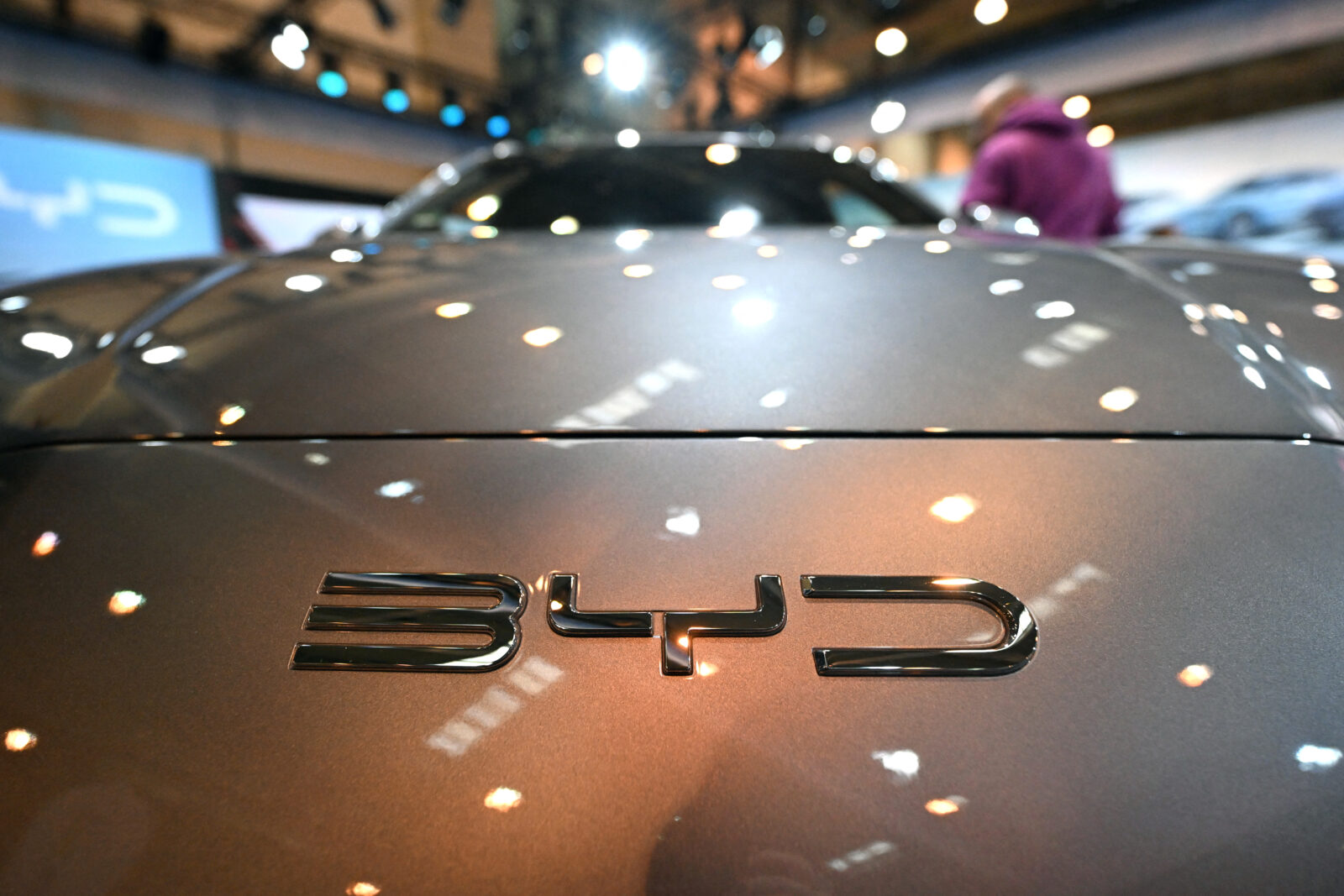US to ban Chinese tech in smart cars starting 2027
 File photo shows electric cars for export waiting to be loaded on the "BYD Explorer NO.1", a domestically manufactured vessel intended to export Chinese automobiles, at Yantai port, in eastern China's Shandong province, on Jan. 10, 2024. (AFP Photo)
File photo shows electric cars for export waiting to be loaded on the "BYD Explorer NO.1", a domestically manufactured vessel intended to export Chinese automobiles, at Yantai port, in eastern China's Shandong province, on Jan. 10, 2024. (AFP Photo)
The United States finalized a rule Tuesday that effectively bars Chinese technology from passenger vehicles in the American market, citing national security concerns. The move, which also targets Russian tech, is part of outgoing President Joe Biden’s efforts to tighten curbs on technology from rival nations.
The rule, a culmination of a months-long regulatory process, comes shortly after Washington revealed it was considering new restrictions on drones with components from countries like China and Russia.
“Cars today aren’t just steel on wheels — they’re computers,” said Commerce Secretary Gina Raimondo. She explained that modern vehicles are equipped with cameras, microphones, GPS, and other internet-connected technologies. “This is a targeted approach to ensure we keep PRC and Russian-manufactured technologies off American roads,” she added, referring to the People’s Republic of China.

Tech ban to take effect in 2027
The rule currently applies to passenger vehicles weighing under 10,001 pounds, but the U.S. Commerce Department plans to introduce additional regulations for commercial vehicles such as trucks and buses in the future.
Beginning with model year 2027, manufacturers with “a sufficient nexus” to China or Russia will be prohibited from selling vehicles in the U.S. market if they incorporate software and hardware for external connectivity or autonomous driving from those nations. The ban also extends to the import of such components.
Hardware restrictions will apply to the 2030 model year.
US-China tensions over technology
The rule follows fresh U.S. restrictions on AI-related chip exports to China, introduced earlier this week. The Biden administration has been expanding efforts to limit Chinese access to cutting-edge technologies, particularly in artificial intelligence and defense, as concerns over Beijing’s tech advancements grow.
National Economic Advisor Lael Brainard highlighted China’s ambitions to dominate the auto industry’s future but warned that connected vehicles with foreign-manufactured software could lead to the misuse of sensitive data or cyber interference.
Incoming President-elect Donald Trump will oversee the implementation of many of these new regulations. On Monday, Biden urged the next administration to maintain U.S. leadership in artificial intelligence.
“We must not offshore artificial intelligence, as we once did with computer chips and other critical technologies,” Biden said, emphasizing the importance of staying at the forefront of technological development alongside close allies.
In response to the new measures, China’s Commerce Ministry labeled the AI-related export curbs a “flagrant violation” of international trade rules. Beijing warned it would take necessary measures to protect its interests, signaling potential retaliation against the U.S. crackdown on Chinese technology.
As tensions escalate, the Biden administration has also taken steps to bolster U.S. tech infrastructure. On Tuesday, Biden signed an executive order aimed at accelerating the development of artificial intelligence infrastructure domestically, vowing that the U.S. would not be outpaced by foreign competitors.
“We will not let America be out-built when it comes to the technology that will define the future,” Biden said in a statement.



